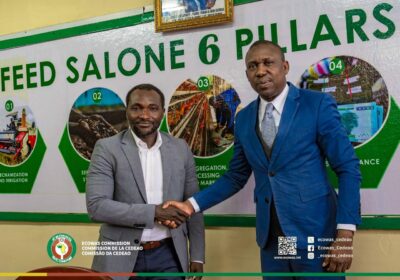Cöte d’Ivoire 2025: ECOWAS, AU Issue Preliminary Statement, Call for Calm and Reiterate Commitment to Credible Outcome.
By Raymond Enoch
On 25th October 2025, the Republic of Cöte d’Ivoire held its presidential election in accordance with the nation’s Constitution and electoral laws, with five candidates approved by the Constitutional Council contesting for the presidency. The election represents a critical milestone in the country’s democratic consolidation, following the crises of 2010 and 2020.
In a statement issued on 27th October 2025 and signed by Professor Yemi Osinbajo, Head of the joint ECOWAS-AU Election Observation Mission, the Commission said that the electoral process received support from both the ECOWAS Commission and the African Union Commission, in line with Articles 12 and 13 of the ECOWAS Supplementary Protocol on Democracy and Good Governance and Articles 17 to 21 of the African Charter on Democracy, Elections and Governance. The support included pre-electoral fact-finding missions, engagement with civil society organizations, senior editors, and media practitioners to mitigate disinformation, misinformation, and hate speech during the campaign period. Both regional bodies also provided financial assistance to the Independent Electoral Commission and the National Council on Human Rights.
The joint pre-electoral missions assessed the readiness of key stakeholders, including the Ministry of Foreign Affairs, the Minister of Defence, the Constitutional Council, the Independent Electoral Commission, the High Authority for Audiovisual Communication, and the National Press Authority. Political parties, religious and traditional leaders, civil society organizations, NGOs, the diplomatic corps, and international observers were also consulted.
Ahead of the election, ECOWAS President H.E. Omar Alieu Touray and African Union Commission Chairperson H.E. Mahamoud Ali Youssouf deployed a joint Election Observation Mission comprising 15 long-term and 240 short-term observers led by Prof. Osinbajo, with support from Baboucar Blaise Jagne of Gambia and Mahamat Saleh Annadif of Chad. The mission, including representatives from 28 African countries, observed all critical phases of the electoral process and served as a rapid-response mechanism to electoral challenges.
The presidential election, initially marked by tensions over the revision of the voters’ register and disqualification of prominent opposition figures including Laurent Gbagbo and Tidjane Thiam, was carried out in a relatively calm socio-political environment. Campaigning, which began on 10th October, ended peacefully on 23rd October despite isolated incidents including the burning of an Electoral Commission office in Yamoussoukro and the death of a gendarme on patrol.
Election Day saw 255 observers deployed to 1,477 polling stations nationwide. Observers reported that approximately 68% of polling stations opened on time, while delays affected one-third of the stations due to logistical challenges, late delivery of voting materials, and absent or late polling officials. There were isolated cases of confusion, including a polling centre relocation in Gagnoa and a temporary disruption in Lolobo Primary School where a group of masked men caused panic. Voting was generally peaceful, with 92% of observed polling stations rated as having ‘good’ or ‘excellent’ conduct. Minor issues included compromised ballot secrecy in some centres, limited accessibility for differently-abled voters, and procedural errors allowing some voters to cast ballots without valid identification.
Counting of votes proceeded largely smoothly, though some stations reported low voter turnout or restrictions on observer documentation. Security personnel were visible but non-intrusive, and no major disruptions were recorded during closing and counting.
Professor Osinbajo, in his statement, emphasized that despite logistical challenges and weak representation of some candidates’ agents, the election was conducted in an orderly manner. The Mission recommended improving logistical coordination, strengthening accessibility measures, training polling staff on ballot secrecy, and integrating agreements from political dialogues into national law. The statement called on all stakeholders – political parties, candidates, supporters, security forces, and citizens – to remain calm and patiently await the official announcement and validation of election results, urging candidates to refrain from statements that could breach public peace.
The preliminary statement underscores the commitment of ECOWAS and the African Union to support Cöte d’Ivoire in consolidating democracy, promoting peace, and maintaining social cohesion in the lead-up to the legislative elections later this year.







